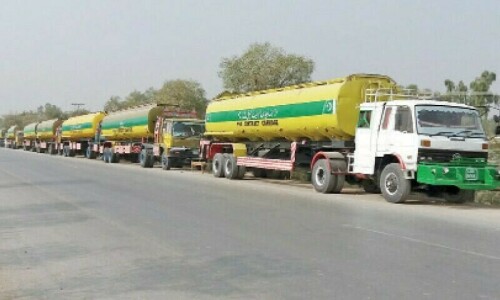ISLAMABAD: Large-Scale Manufacturing (LSM) shrank by 10.26 per cent year-on-year in FY23, showed data released by the Pakistan Bureau of Statistics on Tuesday.
For the 10th consecutive month of the outgoing fiscal year, the production of big industry witnessed a significant contraction of 14.96pc in June. The primary reason behind this decline can be attributed to a slowdown in the production of export-oriented textile and clothing sectors.
The consequences of this downturn in FY23 in large industries are evident in the form of a significant number of job losses. The reduction in production capacity has led to an unfortunate situation where many individuals were rendered jobless.
These statistics highlight the challenges faced by Pakistan’s manufacturing sector and raise concerns about the overall economic performance of the country in the coming months.
The LSM experienced a 14.37pc decline in May compared to the same month last year. The decline was 21pc in April, which is lower than the decline of 25pc in March, 11.6pc in February, and 7.9pc in January. In December 2022, there was a marginal fall of 3.51pc.
In November 2022, there was a negative growth of 5.49pc, while in October 2022 it declined by 7.7pc. In September 2022, there was a decrease of 2.27pc compared to the same month last year. In August, there was a slight increase of 0.30pc after a decline of 1.67pc in July, which was the first month of FY23.
In FY22, the LSM expanded by 11.7pc year-on-year. The production estimate for LSM industries was made using the new base year of 2015-16. In FY23, the production of 20 sectors shrank and only four posted a marginal rise.
The textile sector’s production shrank 18.68pc in FY23 over a year ago. Major negative growth originated from yarn (22.09pc), and cloth (12.39pc). Nominal growth was reported in the production of other products. The production of garments grew 27.16pc in FY23.
In the food group, wheat and rice production dipped by 10.31pc, sugar and bakery products by 15.31pc and blended tea 10.65pc. However, the production of cooking oil was up by 13.57pc and vegetable ghee by 10.64pc, respectively.
Petroleum products posted a negative growth of 13.39pc in FY23, mainly because of a decline in the production of petrol and high-speed diesel while almost all other petroleum products recorded a slowdown except jet fuel, jute batching oil and petroleum products.
The auto sector also saw a 49.99pc slump in FY23 as the production of almost all kinds of vehicles went down except buses and diesel engines.
The production of iron and steel dipped by 5.12pc and pharma products by 28.85pc, rubber items 4.97pc and fertilisers 9pc in FY23 from a year ago.
Published in Dawn, August 16th, 2023












































Dear visitor, the comments section is undergoing an overhaul and will return soon.